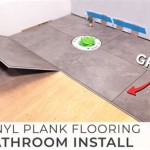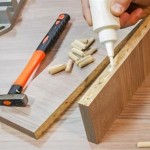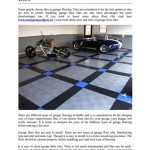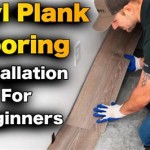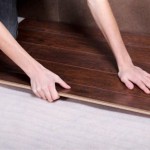Is Vinyl Plank Flooring Safe For Stairs In Georgia Country?
The suitability of vinyl plank flooring for stairs in Georgia Country is a complex issue requiring a careful assessment of several factors. The popularity of vinyl plank as a flooring option has grown significantly due to its durability, water resistance, aesthetic appeal, and relatively affordable cost. However, its application on stairs presents unique challenges that must be addressed to ensure safety and longevity, especially considering the specific climate and environmental conditions prevalent in Georgia Country.
Georgia Country, like many regions, experiences a range of temperatures and humidity levels throughout the year. These variations can significantly impact the performance of flooring materials, including vinyl plank. The expansion and contraction of vinyl due to temperature fluctuations, combined with the potential for moisture infiltration, can affect the adhesion and stability of the flooring on staircases. Consequently, a thorough understanding of these factors is crucial when considering vinyl plank for stair applications.
Furthermore, building codes and regulations in Georgia Country may impose specific requirements for stair construction and safety. These codes often address aspects such as slip resistance, riser height, tread depth, and handrail installation. Ensuring that the chosen vinyl plank flooring meets these requirements is paramount to avoid potential code violations and, more importantly, to safeguard the well-being of residents and visitors.
Slip Resistance and Safety
One of the primary concerns regarding flooring on stairs is slip resistance. Stairs are inherently prone to slips and falls, particularly in environments where moisture or spills are common. Vinyl plank flooring, while generally water-resistant, can become slippery when wet. Therefore, selecting a vinyl plank product with an appropriate slip-resistant rating is essential for stair applications.
The slip resistance of a flooring material is typically measured using a coefficient of friction (COF) rating. The higher the COF, the greater the slip resistance. Building codes often specify a minimum COF requirement for stair treads to minimize the risk of falls. In Georgia Country, it is crucial to consult local building codes to determine the specific COF requirements for stair flooring. This information should be readily available from local building inspection offices or online resources related to construction and safety regulations.
In addition to the COF rating, the texture and surface finish of the vinyl plank can also influence its slip resistance. Products with textured surfaces or embossed patterns tend to provide better grip than smooth, glossy finishes. When selecting vinyl plank for stairs, it is advisable to opt for products with a textured surface to enhance slip resistance and improve overall safety. Consider products marketed specifically for stair treads which often incorporate abrasive materials or textured surfaces to maximize grip.
Furthermore, the installation of stair treads or nosing with integrated slip-resistant features can further enhance safety. These products often incorporate rubber or abrasive strips that provide additional traction and reduce the risk of slips. By combining a slip-resistant vinyl plank with appropriate stair treads or nosing, homeowners and builders can create safer and more secure staircases.
Regular maintenance and cleaning are also essential for maintaining the slip resistance of vinyl plank flooring on stairs. Dirt, dust, and spills can reduce the effectiveness of the slip-resistant surface and increase the risk of falls. Regularly sweeping or vacuuming the stairs and promptly cleaning up spills can help maintain the flooring's slip resistance and prevent accidents. Use cleaners specifically designed for vinyl flooring to avoid damaging the surface and compromising its slip-resistant properties.
Proper Installation Techniques
Even the most slip-resistant vinyl plank flooring will not provide adequate safety if it is not installed correctly. Proper installation is crucial for ensuring the long-term performance and safety of vinyl plank on stairs. Incorrect installation can lead to loose planks, uneven surfaces, and increased risk of trips and falls.
Prior to installation, it is essential to prepare the stair surface properly. This involves ensuring that the stairs are clean, dry, and level. Any existing flooring or adhesive residue must be removed, and any imperfections in the stair surface must be repaired. A level and stable substrate is essential for ensuring that the vinyl plank adheres properly and remains securely in place. In Georgia Country, it's important to consider the potential for moisture issues and ensure the substrate is adequately sealed to prevent moisture damage.
The use of appropriate adhesive is also critical for vinyl plank installation on stairs. The adhesive must be compatible with both the vinyl plank and the stair substrate, and it must provide a strong and durable bond. Consult the vinyl plank manufacturer's recommendations for the appropriate adhesive to use. The adhesive should be applied evenly and in accordance with the manufacturer's instructions.
When cutting and fitting the vinyl plank, it is essential to ensure precise measurements and tight seams. Gaps or uneven seams can create tripping hazards and allow moisture to penetrate beneath the flooring. Use a sharp utility knife or saw to cut the vinyl plank accurately, and ensure that the edges are properly aligned and secured. Consider using a stair tread template to achieve consistent and professional results.
Nosing, which is the edge of the stair tread, presents a specific installation challenge. Stair nosing provides a finished edge to the stair and adds additional safety. It is vital to select an appropriate nosing profile that complements the vinyl plank and provides a secure and slip-resistant edge. The nosing should be securely attached to the stair tread using adhesive and mechanical fasteners, if necessary. Proper installation of stair nosing is essential for preventing wear and tear on the vinyl plank edges and minimizing the risk of trips and falls.
For complex stair configurations, such as curved or winding stairs, professional installation is highly recommended. Experienced flooring installers have the expertise and tools to handle these challenging installations and ensure that the vinyl plank is properly fitted and secured. Hiring a qualified installer can significantly improve the overall quality and safety of the stair flooring.
Durability and Environmental Considerations
The durability of vinyl plank flooring is another important factor to consider when assessing its suitability for stairs in Georgia Country. Stairs are typically subjected to high levels of foot traffic, which can lead to wear and tear on the flooring surface. Selecting a vinyl plank product with a durable wear layer is essential for ensuring that the flooring can withstand the demands of stair applications.
The wear layer is the top protective layer of the vinyl plank that resists scratches, scuffs, and stains. The thicker the wear layer, the more durable the flooring. For stair applications, it is recommended to choose vinyl plank with a wear layer of at least 20 mil (0.5 mm). This will provide adequate protection against wear and tear and ensure that the flooring maintains its appearance for many years.
In addition to the wear layer, the overall construction and quality of the vinyl plank can also affect its durability. Products with a rigid core tend to be more resistant to dents and impacts than those with a flexible core. Consider selecting vinyl plank with a rigid core for stair applications, particularly in high-traffic areas.
The environmental conditions in Georgia Country can also impact the durability of vinyl plank flooring. Fluctuations in temperature and humidity can cause the vinyl to expand and contract, which can lead to warping, cracking, or loosening of the planks. It is important to choose vinyl plank that is specifically designed to withstand these environmental variations. Look for products that are labeled as being dimensionally stable and resistant to moisture. Proper acclimation of the vinyl plank to the installation environment is also crucial for minimizing the effects of temperature and humidity.
Furthermore, exposure to direct sunlight can cause vinyl plank to fade or discolor over time. If the stairs are located in an area that receives direct sunlight, consider using window coverings or UV-resistant vinyl plank to protect the flooring from sun damage. Regular cleaning and maintenance can also help preserve the appearance of the vinyl plank and extend its lifespan.
Finally, consider the impact of pets on the durability of vinyl plank flooring. Pets can scratch or damage the flooring with their claws. If you have pets, choose vinyl plank with a scratch-resistant wear layer and consider using area rugs or runners on the stairs to protect the flooring from damage. Regular grooming of your pets can also help minimize scratches and wear.
In conclusion, determining the safety of vinyl plank flooring for stairs in Georgia Country requires careful consideration of slip resistance, proper installation techniques, and durability, along with environmental factors. Building codes and local regulations must also be consulted to ensure compliance and prioritize safety.

Lvp Stair Treads Ideas

Luxury Vinyl Plank Flooring Stair Treads

Lvp Stair Treads Style Types

Matching Stair Treads

How To Install Lvp Stair Treads

Stair Treads For Spiral Staircase

Pergo Duracraft Marsala Oak 22 Mil X 9 1 2 In W 47 L Waterproof Luxury Vinyl Plank Flooring 18 78 Sq Ft Carton Brown 67403 869

Cap A Tread Vinyl Stair 12 5 Reversible Wood Look Square Nose Indoor Only

Vinyl Flooring Stair Nosing 5 X 6 Free Sample We Use Your Own

How To Install Carpet Stair Tread Pads
See Also
